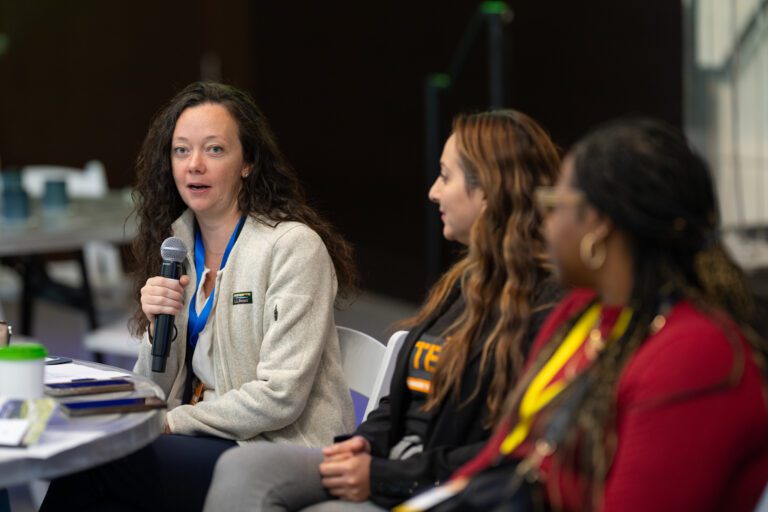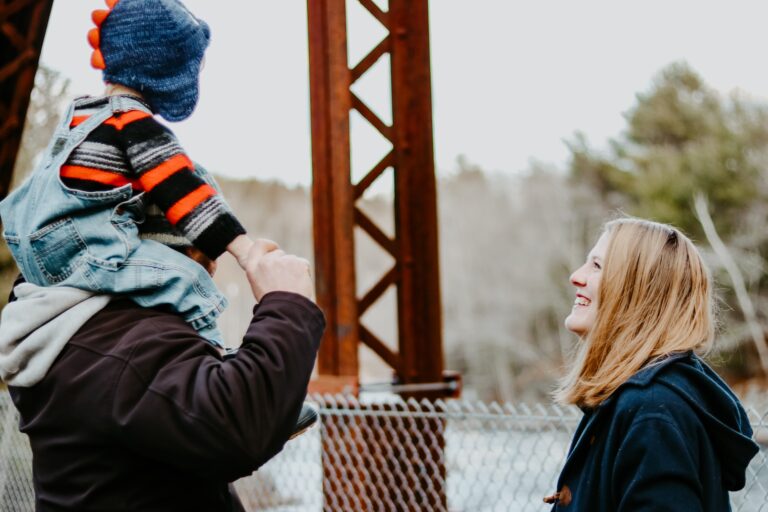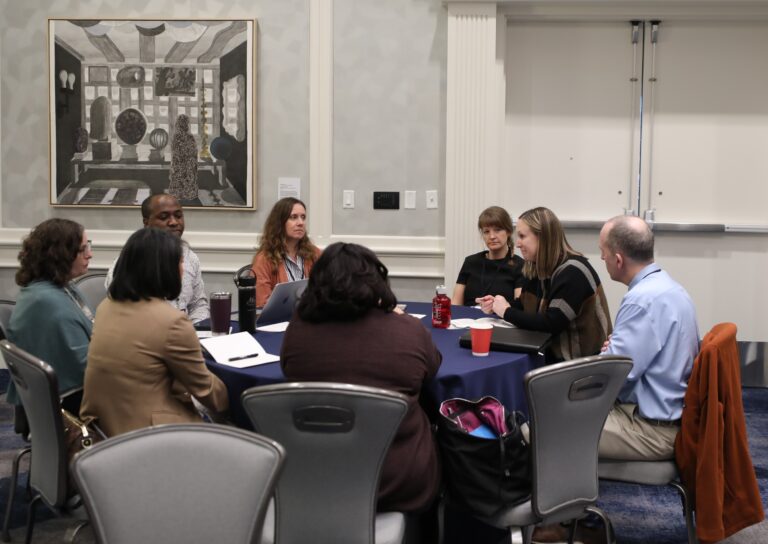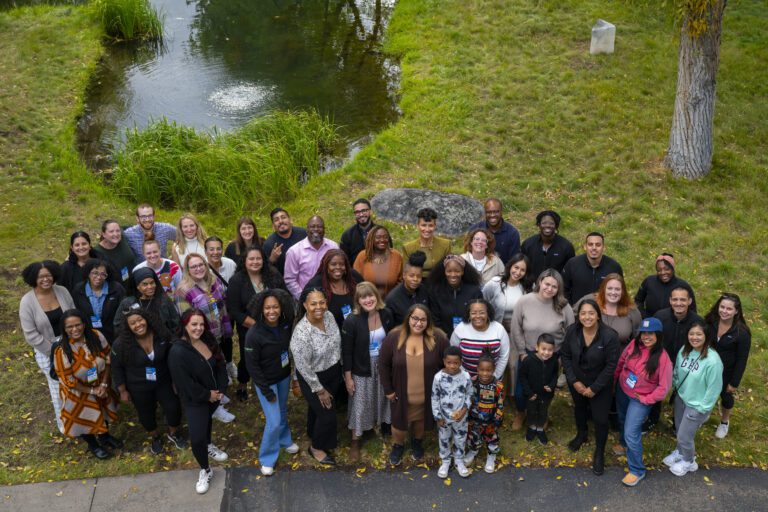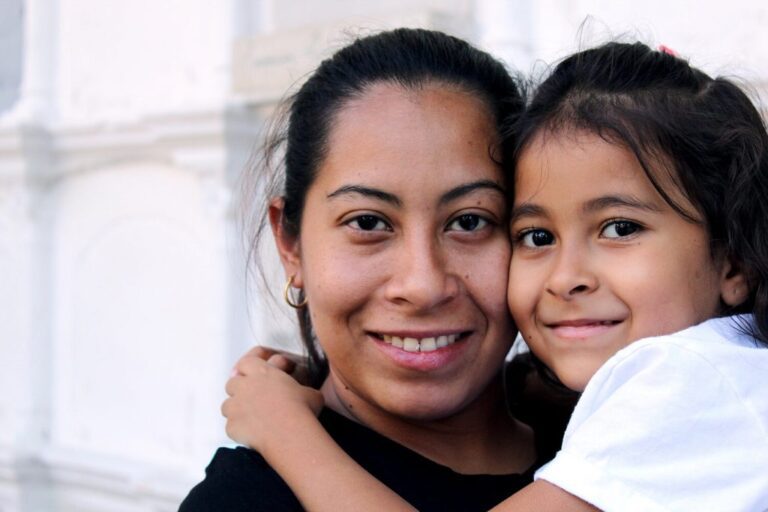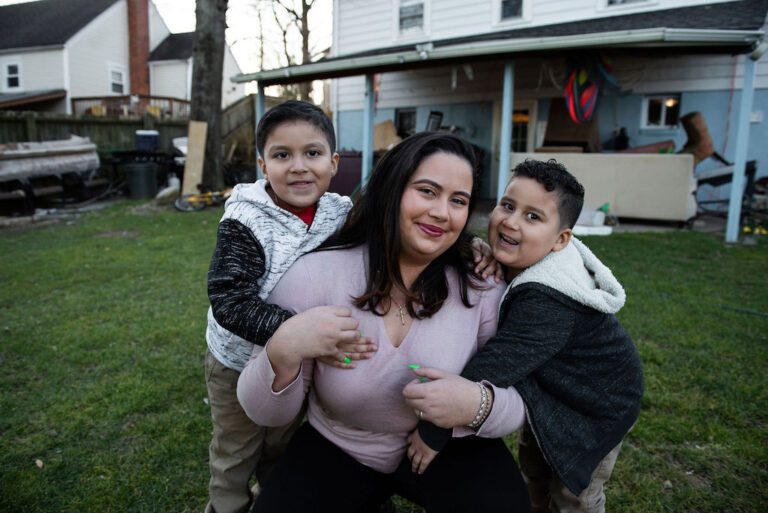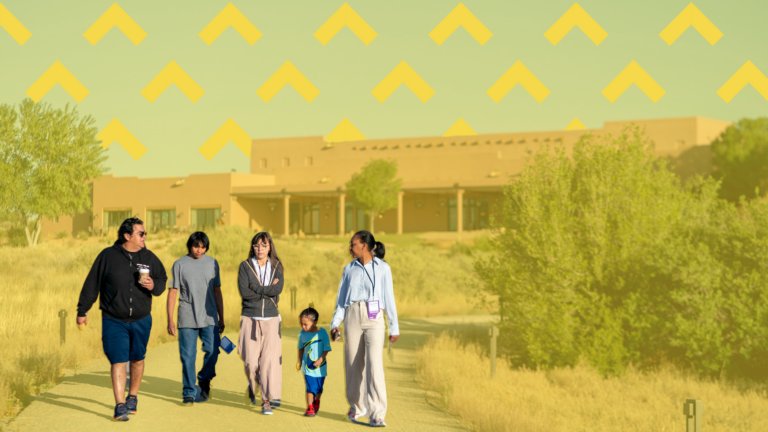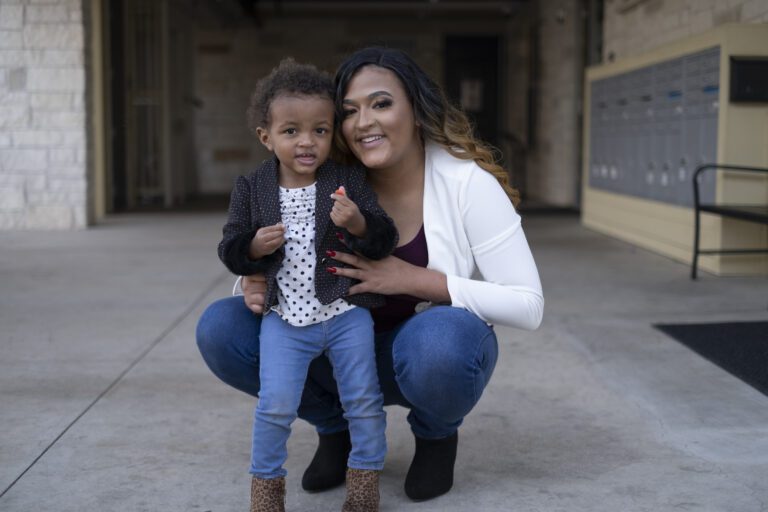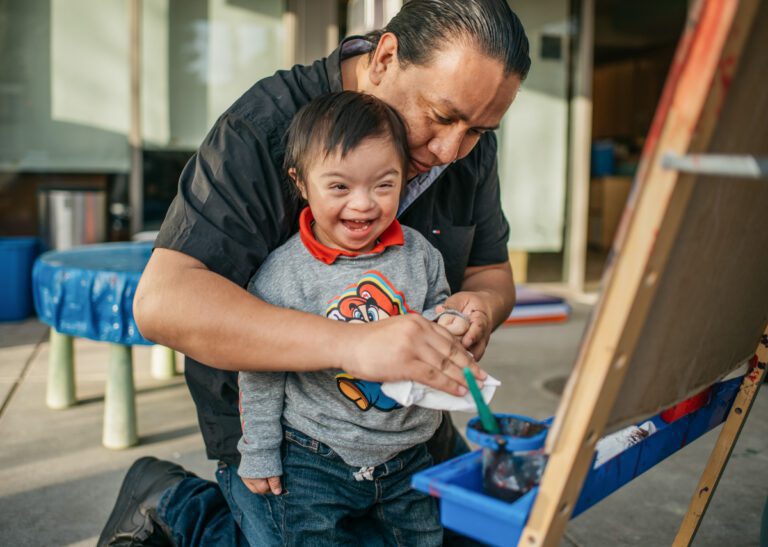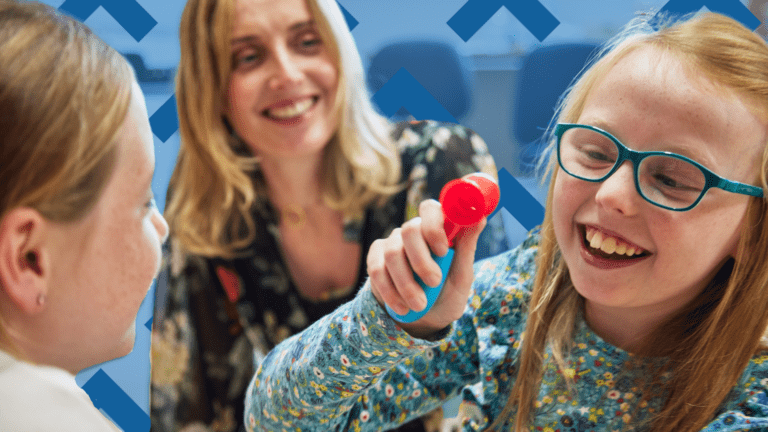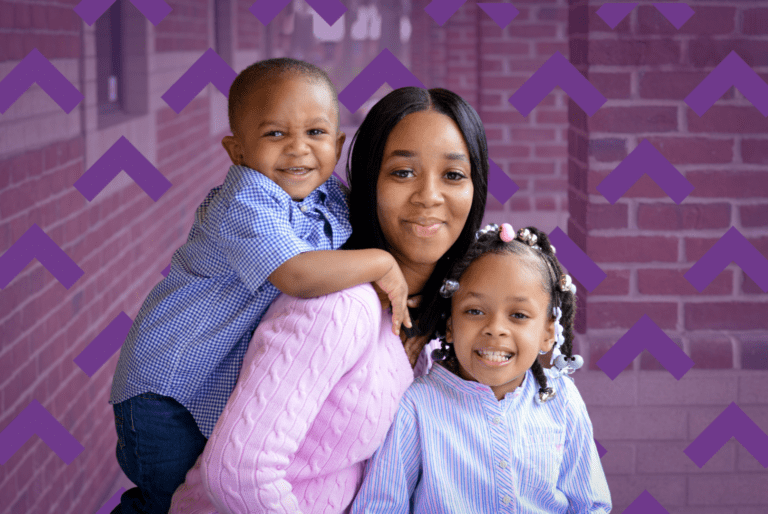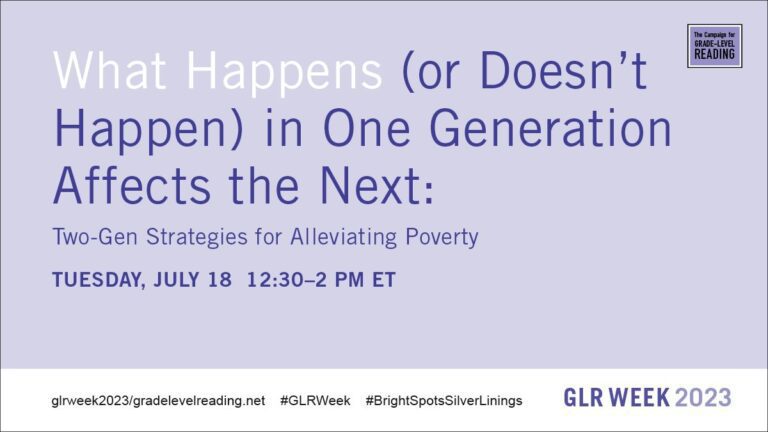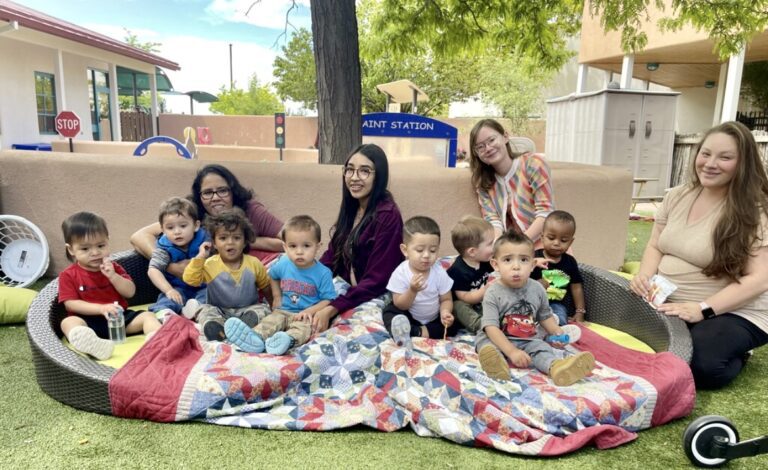Working with Whole Families to Mitigate Trauma
This week Ascend is launching a Portfolio of Trauma-Informed Tools for 2Gen Approaches directly harvested from our Ascend Network and Ascend Fellows, with a special focus on utilizing these tools to support whole families. Trauma-informed care refers to the assessment, recognition, and response to the effects of traumatic stress on children, caregivers, and providers. The portfolio is illustrative, not comprehensive, but it collects about 50 resources that can support a two-generation (2Gen) approach and help mitigate intergenerational trauma and its symptoms.
We wanted this toolkit to be easy to read and access, which means some important stories still need to be told. There are incredible practices and programs Ascend Network partner organizations utilize to build family well-being and health, particularly when both generations are experiencing symptoms of toxic stress or trauma. Below, three Ascend Network Partners share the day-to-day considerations and practices they hold to support not just families, but staff who support those families, to ensure they feel included, supported, and safe.
COTS
Detroit, Michigan
COTS operates a families-only emergency shelter that serves approximately 40 families with 70-90 children on any given night. COTS and the families they work with are faced with unique challenges of supporting children in virtual schooling when students don’t always have adequate computers, wifi access, or comfort logging onto a video platform which might reveal their location in a shelter. To make children feel safe and provide resources to succeed in virtual schooling, COTS created a Learning Lab. The Learning Lab offers independent workspaces for all school-aged students with the oversight of Academic Support Specialists. With support from the W.K. Kellogg Foundation, COTS has provided computers, headphones, snacks, and other supplies to support students in their learning.
To encourage learning, community, and reflection amongst their staff, COTS facilitates an organization-wide book learning. Several times a year the team selects a book around relevant topics – like secondary trauma, trauma stewardship, leadership, and rest – which is purchased for each staff member interested in participating. Some books the COTS team has read include:
- Dare to Lead by Brene Brown
- Trauma Stewardship by Laura Van Dernoot Lipsky
- What Happened to You?: Conversations on Trauma, Resilience, and Healing by Oprah Winfrey and Dr. Bruce Perry
- Rest is Resistance by Tricia Hersey
- My Grandmother’s Hand by Resmaa Menakem
In addition to the above, COTS uses an ‘open door’ policy – meaning that a family can access coaching services at any point throughout their time in or after the shelter or housing services. They recognize that a component of being trauma-informed is giving a family the choice of when they choose to engage.
The Family Partnership
Minneapolis, Minnesota
The Family Partnership uses a 2Gen approach to partner with families to remove barriers and build a path for success for those who have experienced deep poverty and trauma.They use several trauma-informed, evidence-based mental health practices in their work with children and families, including: Experiential Play Therapy, Trauma Focused Cognitive Behavioral Therapy (TF-CBT), Narrative Exposure Therapy (NET), Eye Movement Desensitization Reprocessing (EMDR), Prolonged Exposure Therapy, Internal Family Systems.
The Family Partnership’s Lake Street site was built to serve communities locally and reflects elements of Native culture and nature throughout, as well as a meditation room to give families a safe and comforting space to receive support. They’ve also facilitated partnerships to create PRIDE (Promoting Recovery, Independence, Dignity, and Equality) – the first program in Minnesota to work with adult and youth survivors of sex trafficking to help them both get out of “the life” and ensure the healing and growth necessary to move forward. The program uses an integrated, trauma-informed approach that leverages the lived experience and leadership of survivors, and a variety of strategies (including Mobility Mentoring) designed to promote safety, wellness, and economic empowerment.
Lastly, The Family Partnership developed the EGG Toolkit. In collaboration with early childhood educators, leading experts in brain science, child development, and curriculum design, they developed this early childhood supplemental curriculum to buffer children ages 3-5 against adverse childhood experiences (ACEs) and toxic stress. EGG contains a half day of professional development and all the materials needed to implement EGG across the school year.
New Mexico Asian Family Center
Albuquerque, New Mexico
The New Mexico Asian Family Center uses culturally- and linguistically-tailored services for New Mexico’s Pan-Asian Community, and is often an initial point of contact for families or community members. They meet families where they are by using a culturally competent lens and leaning into traditional healing practices defined by the person(s) seeking support. Community members inform policies and practices within the organization. The development and implementation of all programs and services at NMAFC is in response to the needs of the community, and thus, these supports are ever changing and are being tailored to address the issues in the most culturally specific manner possible. The importance of community and cultural retention is reflected through their events and programming, including drumming and community healing circles, yoga and wellness programs, and gatherings centered around tea and food.
The staff at NMAFC reflect the communities they serve, which is critical in building rapport. However, leadership at NMAFC recognizes that supporting those experiencing trauma can be extremely taxing on staff, particularly those who hold similar identities as those they support. NMAFC prioritizes a culture of wellness for their staff by offering weekly staff self-care activities; trust in their own cultural definition of best practices; collective decision-making; cultivating non-traditional, radical, and new types of leadership emerging through NMAFC; monthly staff bonding days; monthly office-wide closure for a mental health day; “no-meetings-Mondays;” access to personal coaching; and regular trainings for supervisors on supporting staff to avoid burnout and foster a culture of care. NMAFC also offers training to their staff on topics including: strategies for healing, trauma and vicarious trauma, understanding boundaries and how to set them, burnout and compassion fatigue, cross-racial movement building with the shared inheritance of trauma, and service models for healers.
NMAFC has intentionally invested in survivor-led and centered direct social services, prevention programming and civic engagement work, nurtured spaces for youth and family leadership development, and sought to ground its services in the traditional modalities of healing through practices that have been with families across generations. NMAFC’s core values are founded on the belief that solutions and answers lie within communities’ deep wisdom and experiences, and that their organizational leadership, as well as their programs and services, should reflect this.
Ascend is deeply grateful to all of our partners for their contributions to the development of this Portfolio of Trauma-Informed Tools for 2Gen Approaches. Furthermore, we recognize and appreciate the critical and challenging work practitioners and organizations are taking to support families using a trauma-informed approach. We encourage you to download and share this collection of resources and tools to improve your implementation of trauma-informed care in your 2Gen approaches. Please feel welcome to reach out to our team if you have any questions or comments regarding this toolkit.
Related Posts
